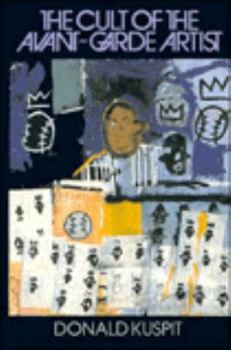The Cult of the Avant-Garde Artist
Select Format
Select Condition 
Book Overview
The Cult of the Avant-Garde Artist examines the philosophical, psychological and aesthetic premises for avant-garde art and its subsequent evolution and corruption in the late twentieth century. Arguing that modernist art is essentially therapeutic in intention, both towards self and society, Donald Kuspit further posits that neo-avant-garde, or post-modern art, at once mocks and denies the possibility of therapeutic change. As such, it accommodates...
Format:Paperback
Language:English
ISBN:0521469228
ISBN13:9780521469227
Release Date:June 1994
Publisher:Cambridge University Press
Length:188 Pages
Weight:0.70 lbs.
Dimensions:0.5" x 6.0" x 9.0"
Related Subjects
Architecture Art Art History Arts, Music & Photography Education & Reference HumanitiesCustomer Reviews
0 rating





